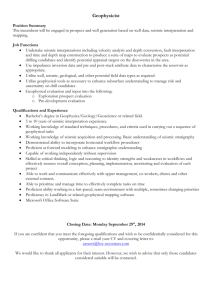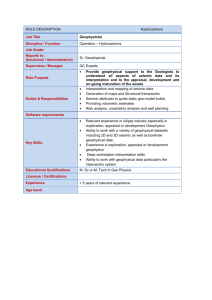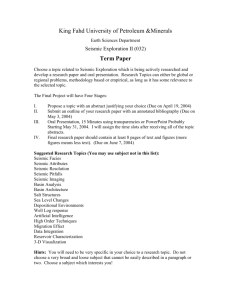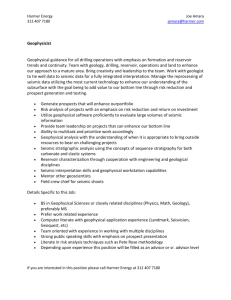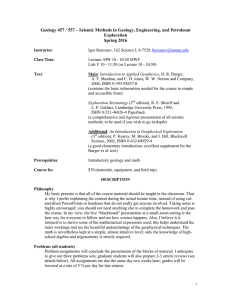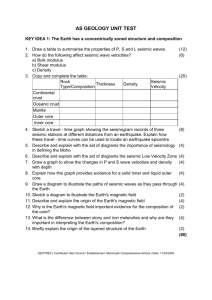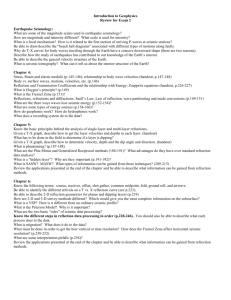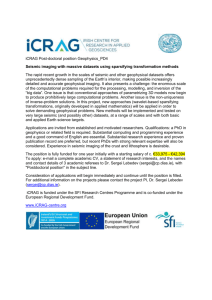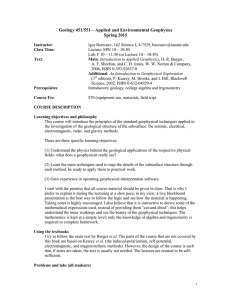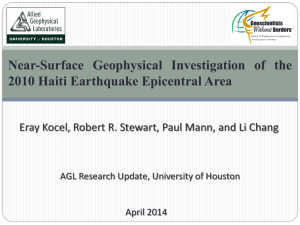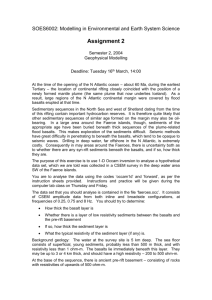212782
advertisement
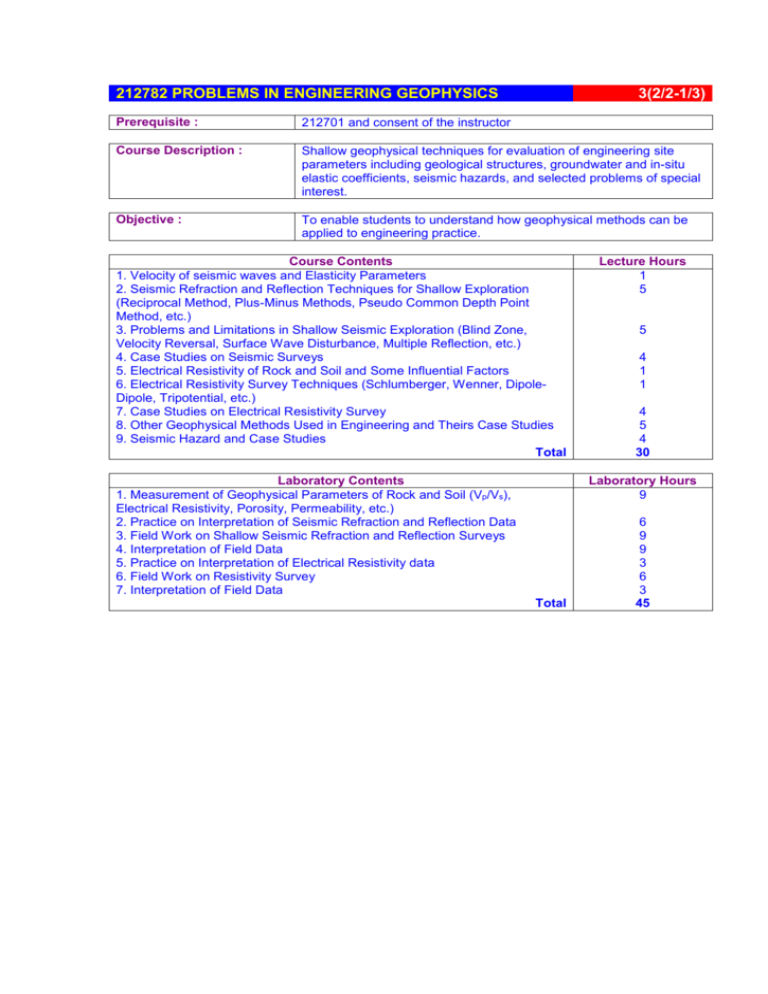
212782 PROBLEMS IN ENGINEERING GEOPHYSICS 3(2/2-1/3) Prerequisite : 212701 and consent of the instructor Course Description : Shallow geophysical techniques for evaluation of engineering site parameters including geological structures, groundwater and in-situ elastic coefficients, seismic hazards, and selected problems of special interest. Objective : To enable students to understand how geophysical methods can be applied to engineering practice. Course Contents 1. Velocity of seismic waves and Elasticity Parameters 2. Seismic Refraction and Reflection Techniques for Shallow Exploration (Reciprocal Method, Plus-Minus Methods, Pseudo Common Depth Point Method, etc.) 3. Problems and Limitations in Shallow Seismic Exploration (Blind Zone, Velocity Reversal, Surface Wave Disturbance, Multiple Reflection, etc.) 4. Case Studies on Seismic Surveys 5. Electrical Resistivity of Rock and Soil and Some Influential Factors 6. Electrical Resistivity Survey Techniques (Schlumberger, Wenner, DipoleDipole, Tripotential, etc.) 7. Case Studies on Electrical Resistivity Survey 8. Other Geophysical Methods Used in Engineering and Theirs Case Studies 9. Seismic Hazard and Case Studies Total Laboratory Contents 1. Measurement of Geophysical Parameters of Rock and Soil (Vp/Vs), Electrical Resistivity, Porosity, Permeability, etc.) 2. Practice on Interpretation of Seismic Refraction and Reflection Data 3. Field Work on Shallow Seismic Refraction and Reflection Surveys 4. Interpretation of Field Data 5. Practice on Interpretation of Electrical Resistivity data 6. Field Work on Resistivity Survey 7. Interpretation of Field Data Lecture Hours 1 5 5 4 1 1 4 5 4 30 Laboratory Hours 9 Total 6 9 9 3 6 3 45
